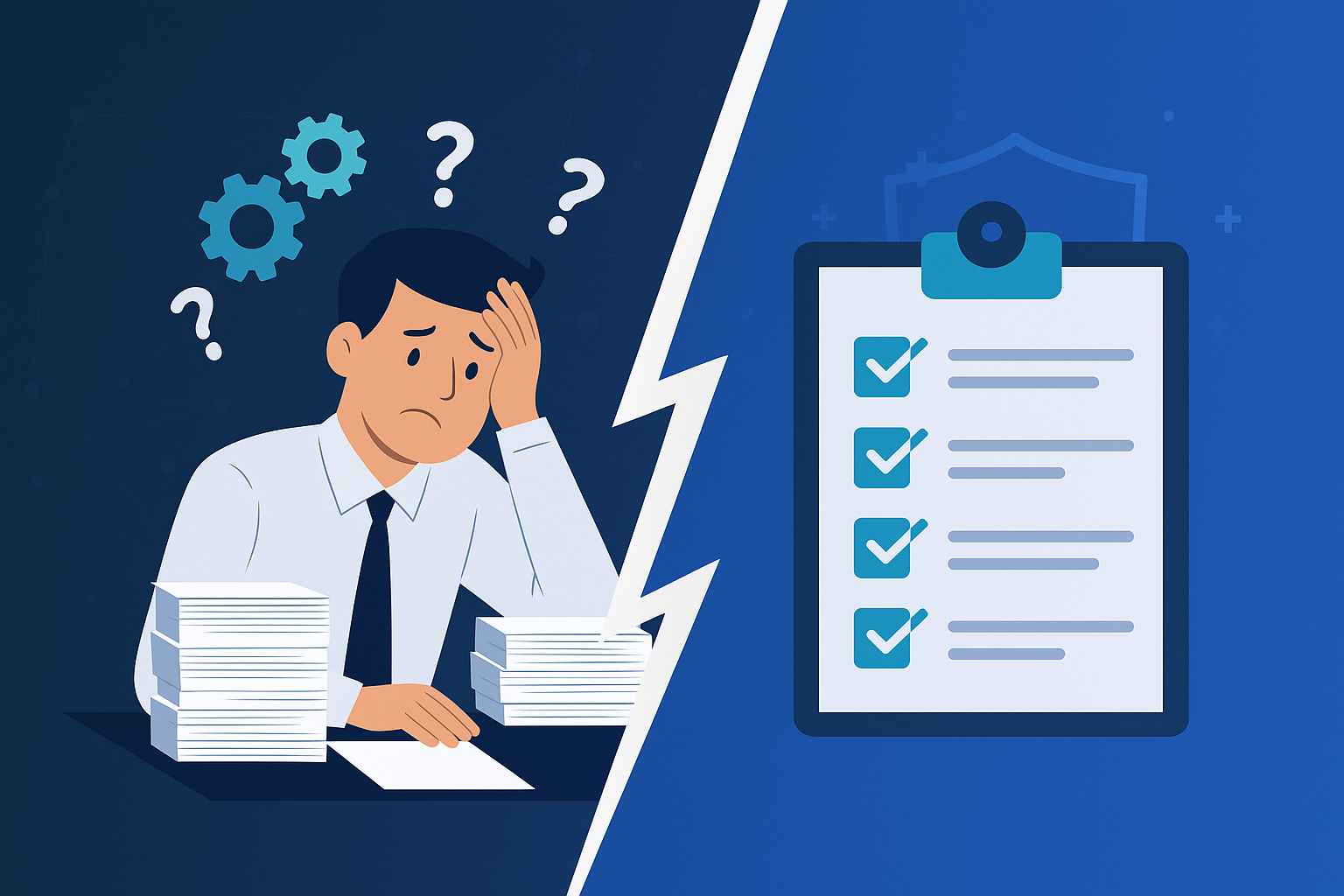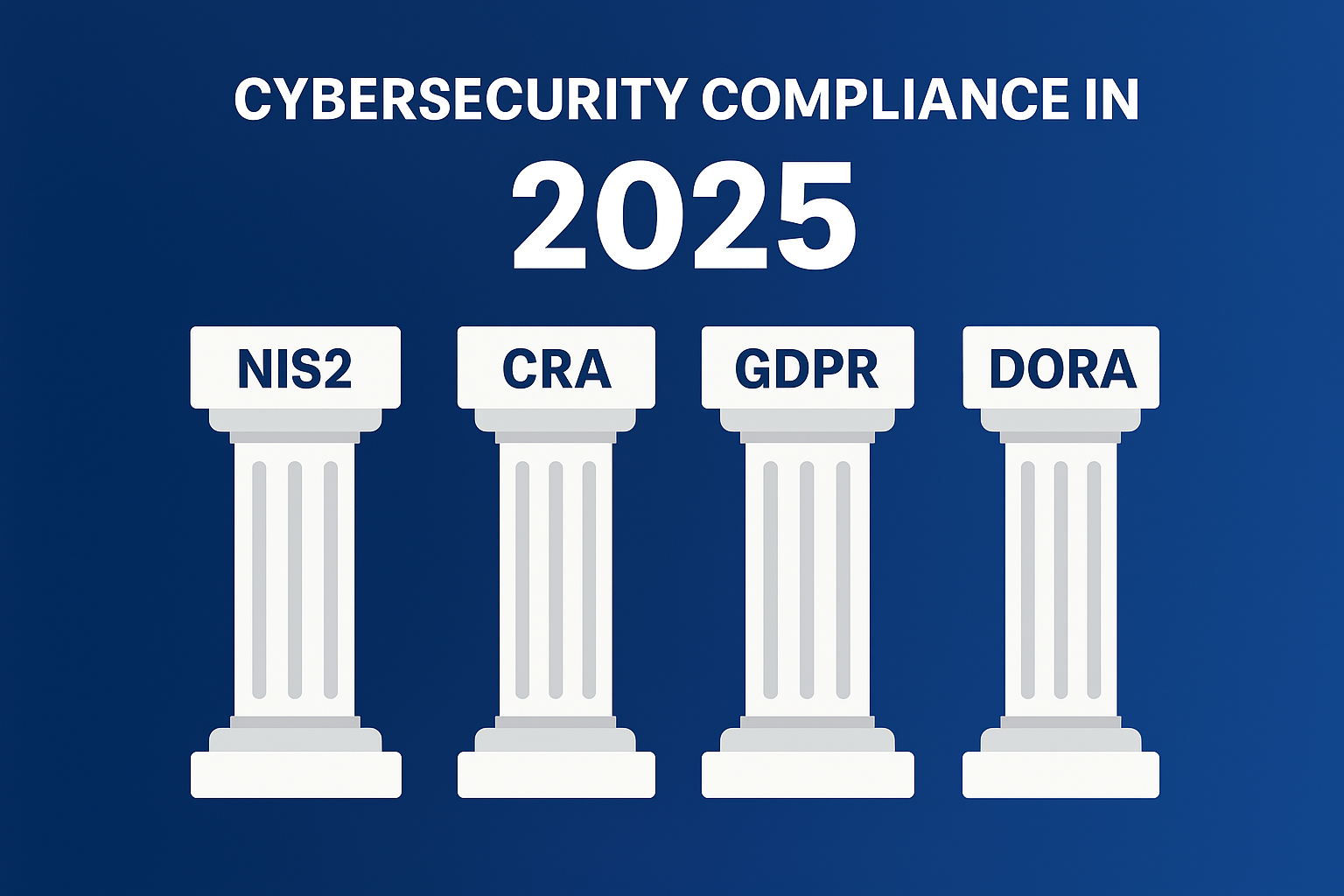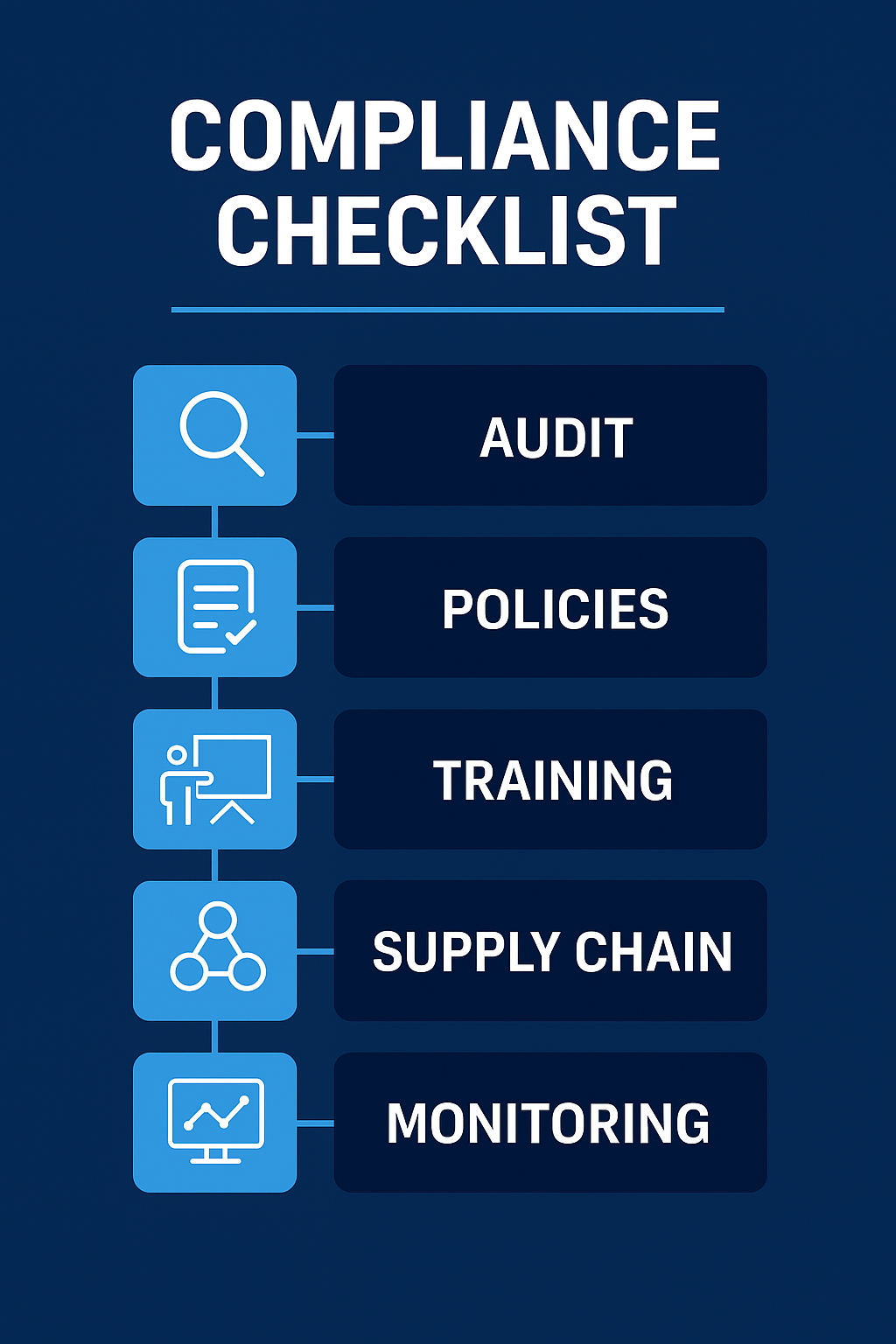Cybersecurity regulations in the UK and EU are becoming more complex in 2025. Small and mid-sized businesses (SMBs) can no longer ignore compliance, as new rules such as the NIS2 Directive, the Cyber Resilience Act (CRA), the Digital Operational Resilience Act (DORA), and UK GDPR updates come into force. For many business owners, the question isn’t if compliance matters, it’s how to stay compliant without breaking budgets or slowing growth.
This guide explains the essentials of cybersecurity compliance for SMBs in the UK and EU, highlighting the most important 2025 regulations, why they matter, and how to approach compliance with confidence.
Why Cybersecurity Compliance Matters for SMB
Cybersecurity isn’t just a “big business” concern. According to the UK government’s Cyber Security Breaches Survey 2024, 32% of UK businesses reported a cyber-attack in the past year, with phishing the most common threat (Gov.uk).
For SMBs, the stakes are high:
- Legal penalties for non-compliance with GDPR or NIS2 can reach millions of euros.
- Reputation damage can cost customer trust overnight.
- Supply chain risks mean large clients often demand compliance proof from smaller vendors.
Compliance ensures that your business is not only protected against attacks but also seen as a trustworthy partner in the eyes of customers and suppliers.

Key Cybersecurity Regulations in 2025
1. NIS2 Directive (EU)
The NIS2 Directive, effective from October 2024, expands cybersecurity obligations across 17 sectors and affects around 160,000 businesses in the EU.
For SMBs in critical sectors like healthcare, digital infrastructure, or managed IT services, this means:
- Stronger risk management policies.
- 24–72 hour incident reporting.
- Ensuring supply chain security with third-party providers.
Even if your SMB isn’t directly regulated, if you’re part of a larger supply chain, your clients may require you to demonstrate NIS2 compliance readiness.
2. Cyber Resilience Act (EU)
The Cyber Resilience Act (CRA) introduces mandatory cybersecurity requirements for digital products and software. This law impacts SMBs that develop or sell digital tools, connected devices, or IoT solutions.
Key takeaways:
- Products must have security by design.
- Mandatory vulnerability reporting to ENISA.
- Ongoing security patching responsibilities.
Source: European Council – Cyber Resilience Act

3. UK GDPR Updates (2025)
In June 2025, the UK passed the Data Use and Access Act (DUAA), reforming UK GDPR.
Key changes include:
- Clearer rules on data transfers.
- More flexibility for SMBs handling low-risk data.
- Alignment with innovation-friendly data use, while maintaining core GDPR principles
For SMBs, this means refreshing privacy policies, updating data protection impact assessments (DPIAs), and ensuring staff are trained in the new provisions.
4. Digital Operational Resilience Act (DORA)
DORA took effect in January 2025 and focuses on financial institutions, but many FinTech SMBs and IT service providers fall under its scope.
Requirements include:
- ICT risk management frameworks.
- Third-party risk monitoring (especially for cloud service providers).
- Regular resilience testing
Even if you’re not in finance, DORA is a glimpse into the future of how other industries may regulate operational resilience.
Common Compliance Challenges for SMBs
SMBs in the UK and EU often face hurdles like:
- Limited budgets for advanced tools.
- Lack of in-house expertise in cyber law compliance.
- Difficulty keeping up with multiple overlapping regulations.
- Employee resistance to new policies.
The UK came in with the lowest awareness level, with only 39% of UK companies identifying the law as a compliance concern.
How to Stay Compliant: A Practical Roadmap
1. Start With a Compliance Audit
Run a cybersecurity compliance audit to identify gaps. External consultants can provide a NIS2 readiness assessment or a GDPR compliance check.
2. Update Policies & Train Staff
Employees remain the first line of defence. Phishing is still the most common attack vector (Gov.uk). Regular training reduces risk and meets regulatory requirements.
3. Secure Supply Chains
Both NIS2 and the UK’s Cyber Resilience Bill emphasize third-party risk. Demand proof of compliance from vendors and integrate this into contracts.
4. Implement Security by Design
If your SMB develops software or digital products, adopt security by design principles early in the lifecycle to meet CRA standards.
5. Monitor and Report
Use tools integrated with SIEM/XDR systems to monitor incidents and ensure fast reporting. Early detection reduces penalties and damage.

The Benefits of Compliance for SMBs
- Avoid fines: GDPR violations can cost up to €20 million or 4% of turnover (GDPR.eu).
- Win bigger contracts: Larger enterprises often require proof of compliance.
- Stronger customer trust: Demonstrating compliance builds credibility.
- Resilience against attacks: Compliance overlaps with best security practices, reducing real-world risk.
Conclusion: Compliance Is Your Competitive Edge
For SMBs in the UK and EU, cybersecurity compliance in 2025 is more complex than ever, but also more rewarding. By understanding regulations like NIS2, CRA, GDPR, and DORA, small businesses can stay protected, competitive, and trusted in their markets.
At I-NET Software Solutions, we provide cybersecurity compliance audits, training, and consulting services tailored for SMBs in the UK and EU. Book a free consultation to discover how we can help your business navigate compliance confidently.
Related reading: The Role of Threat Intelligence Tools in Preventing Attacks Before They Happen.
